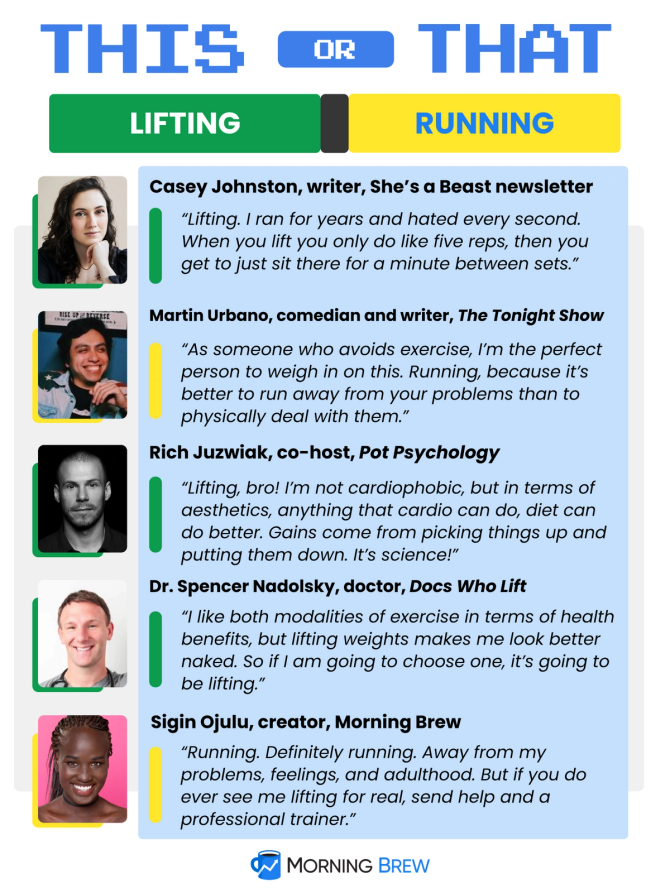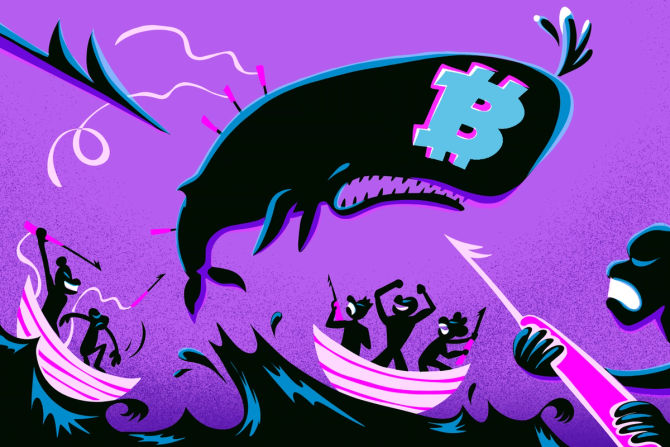| | | | | |  Will Varner | | IN THIS ISSUE | Crypto's loudest critics | Beyoncé is r/antiwork | Patrick Radden Keefe on rogues | | | | "     this timeline is chaotic I'm over it."—Redditor Plane_Repair on the internet's discovery that the Kardashians staged a pivotal moment in the season finale of KUWTK this timeline is chaotic I'm over it."—Redditor Plane_Repair on the internet's discovery that the Kardashians staged a pivotal moment in the season finale of KUWTK "I don't want my dogs to do anything but enjoy their little lives."—David Fitzpatrick, co-owner and handler of 2021's Westminster Kennel Club Dog Show champion Wasabi, to the New York Times "Do you feel trapped here, in this body and in this environment?"—Brad Pitt to GQ "With sorrow—for this Court, but more, for the many millions of American women who have today lost a fundamental constitutional protection—we dissent."—Justices Stephen Breyer, Sonia Sotomayor, and Elena Kagan in the dissenting opinion, Dobbs v. Jackson Women's Health Organization | | | Getty Images "I just quit my job," Beyoncé sings in her new single, "Break My Soul." The song continues: "Damn, they work me so damn hard/Work by nine/Then off past five/And they work my nerves/That's why I cannot sleep at night." Embracing the post-pandemic American malaise about work and money is a vibe shift for Queen Bey, whose early success was built on girlboss bops that linked women's power with hard-earned cash. "In the closet that's my stuff, yes/If I bought it please don't touch," she sang to a no-good boyfriend in 2006's "Irreplaceable." It was a grown-up version of the same sentiment embraced by Destiny's Child in 2000's "Independent Women Part 1," an empowerment anthem that embodied the early aughts' vague notion of girl power. Addressing "all the honeys making money," Beyoncé and company identified women's independence with purchasing power born from work. "The watch I'm wearing, I bought it/The house I live in, I bought it/The car I'm driving, I bought it," Destiny's Child sang. The song was irresistible not only because of its catchy pop hook, but also because it tapped into the psyche of a generation of women who'd been promised that a profession—that the right job—was fundamental to equality. Here was an unapologetic celebration of promise, one that culminated 14 years later when Yoncé stood in front of white neon letters that spelled out "feminist" while ordering the world to "bow down, bitches." That promise turned out to be empty as Americans, led mainly by women, quit their job en masse in what was dubbed the Great Resignation. In September 2021 alone, 26,000 women left the workforce, either by choice or driven out by the lack of child care. If Beyoncé's early lyrical approach to work feels outdated, it's because the culture now is less rise and grind and more r/antiwork. A job was once empowering, enabling the show of independence through conspicuous consumption, but now it's practically soul-breaking. Beyoncé is nothing if not a savvy interpreter of the zeitgeist, and the lament in "Break My Soul" that "they work me so damn hard" is in almost comical contrast to Kim Kardashian's viral thoughts about work. "I have the best advice for women in business," Kardashian told Variety. "Get your fucking ass up and work. It seems like nobody wants to work these days." The internet delighted in roasting her girlboss-infused advice that belied the reality of the Great Resignation (which, btw, shows no signs of stopping). Sure, the internet hates Kim—she's one of its go-to villains—but five years ago her directive that women just work would have been a hustle culture slogan, ready-made for coffee mugs. Kim missed the shift: The girlboss isn't just dead, she's buried six feet under, and protesters are defacing her grave. And Beyoncé is making bank. —Stassa Edwards | | |  —Interviews by Ashwin Rodrigues | | | | | | There's a lot going on with the economy, and none of it is easy to understand. Here to explain just what the heck is happening in the finance world is Real Vision. It's a video-on-demand finance + education platform that you can watch anywhere—on your phone, desktop, smart TV, and more. If you wanna go beyond the numbers, Real Vision's Investor Psychology course helps you understand why people do the things they do. In this 7-day class, you'll hear from some of the world's brightest brains, including a Nobel Prize winner. Start learning today with Real Vision. | | | | Photograph by Lars van der Brink Patrick Radden Keefe is a writer for The New Yorker and an investigative journalist. He is the author of Say Nothing, a masterful account of "The Troubles" in Northern Ireland (seriously, read it), and Empire of Pain, the story of the Sackler family and their OxyContin empire. Keefe's books have won numerous awards, including the National Book Critics Circle Award for Nonfiction. His new book Rogues: True Stories of Grifters, Killers, Rebels and Crooks, is a collection of stories about criminals and con artists. It will be released June 28. What's the best advice you ever received? "Never forget that the toes you step on today may be connected to the ass you have to kiss tomorrow." What's the most embarrassing song you'll admit to liking publicly? I made an eight-part podcast series called Wind of Change about the 80s metal power ballad of the same name, which may have been written by the Scorpions or may have been written by the CIA. The song is still stuck in my head. What fictional person do you wish were real? Atticus Finch. What real person do you wish were fictional? Donald J. Trump. How would you explain TikTok to your great-grandparents? I would first need someone to explain it to me. What always makes you laugh? Any conversation with my sister. If you were given a billboard in Times Square, what would you put on it? "Keep calm and carry on." You've spent your career covering crime and secrets and their devastating, long-lasting effects. What's your biggest takeaway from years spent immersed in these kinds of stories? Most villains don't think they're the villains. We're all prone to self-delusion: the little lies we tell ourselves about why the choices we make are the right ones, even when they're manifestly not. The rogues I've written about are extreme examples, but if there is one thing many of them share, it is an astonishing capacity for self-delusion.
—Interview by Sherry Qin
| | |  Will Varner Will Varner "It's never a good time to be skeptical of crypto," Molly White said. Her name might be familiar: She's a software engineer who runs Web3 Is Going Just Great, an ironically named website that meticulously documents exchange hacks, rug-pulls, crashes, and stolen apes. The site even features a "grift counter," which adds up the losses of all the scams and fraud White has documented—the amount is approaching $10 billion. White's assessment might be particularly true now as crypto plummets and blockchain meteorologists keep bringing up crypto winter: Bitcoin is down almost 70% from its historic November high, ethereum is down more than 70%, and multiple crypto exchanges have laid off workers en masse (including Coinbase). "Stablecoin" now sounds almost ironic after the Terra Luna collapse, and the crypto lender Celsius Network froze all account withdrawals, citing "extreme market conditions." The cryptocurrency market lost more than $2 trillion dollars in a matter of months. For some of crypto's fiercest critics, crypto winter has been proof that they were right all along. Matt Stoller of the American Economic Liberties Project recently tweeted: "I have no idea if Bitcoin or [ethereum] will go to zero. I hope they do, and soon. But my guess is that crypto will never become wholly worthless, but it will eventually become irrelevant, like the Beanie Baby frenzy of the 1990s." Not all of crypto's critics are as uncharitable as Stoller, but they all agree that there's no there there with crypto. While proponents may argue crypto is part of a new world order still shaking the dust off, its opponents see currency built out of sand. These critics are journalists, software engineers, policymakers, and academics. Some want the whole thing to "die in a fire," while others want more proactive regulation. Many voiced their skepticism of crypto even when bitcoin was worth more than $68,000. But now, during crypto's long, dark winter, they're not letting up, even as crypto's champions accuse them of spreading FUD (fear, uncertainty, and doubt). Crypto critics like White, software engineer Stephen Diehl, Google engineer Kelsey Hightower, and journalist Jacob Silverman are resolute, raising concerns about everything from the practicality of blockchains to the growing political influence of crypto moguls to the possible social and economic impacts of the great digital currency experiment. Their voices seem increasingly urgent as crypto loses value and Washington, DC, shows signs that industry regulation is coming in the near future. Continue reading this story by Ashwin Rodrigues | | | Candid convos with industry icons: Hosted by Brew cofounder Alex Lieberman, the Imposters podcast delves deep into the personal and mental challenges some of the biggest names in biz have faced while reaching their most resounding achievements. Listen here. | | | Tech workers would rather quit than be surveilled by their employers. [IT Brew] With a recession looming, streaming services are ready to cut costs and add ads. [Marketing Brew] How the clothes hanger found its hook and reshaped the clothing industry. [Retail Brew] As quantum computing advances, some experts are thinking about the ethical implications of the technology. [Emerging Tech Brew] Gender is a construct, but gender-affirming medical bills are real. [Money Scoop] Sustainable summer sneakers: Cariuma's best-selling canvas shoes are cool, cozy, and completely eco-conscious. These sustainable styles never go on sale, but Brew readers can get 15% off with code MBJUNE15. Get your summer 'fits ready here.* *This is sponsored advertising content. | | | | |  | Written by Stassa Edwards, Amanda Hoover, Ashwin Rodrigues, and Sherry Qin Was this email forwarded to you? Sign up here WANT MORE BREW? Industry news, with a sense of humor → - Emerging Tech Brew: AI, crypto, space, autonomous vehicles, and more
- Future Social: the Brew's take on the world of social media
- HR Brew: analysis of the employee-employer relationship
- IT Brew: moving business forward; innovation analysis for the CTO, CIO & every IT pro in-between
- Marketing Brew: the buzziest happenings in marketing and advertising
- Retail Brew: retail trends from DTC to "buy now, pay later"
Tips for smarter living →  Podcasts → Business Casual, Founder's Journal, Imposters, and The Money with Katie Show Podcasts → Business Casual, Founder's Journal, Imposters, and The Money with Katie Show  YouTube YouTube Accelerate Your Career with our Courses → | ADVERTISE // CAREERS // SHOP // FAQ
Update your email preferences or unsubscribe here.
View our privacy policy here.
Copyright © 2022 Morning Brew. All rights reserved.
22 W 19th St, 4th Floor, New York, NY 10011 | | |
No comments:
Post a Comment